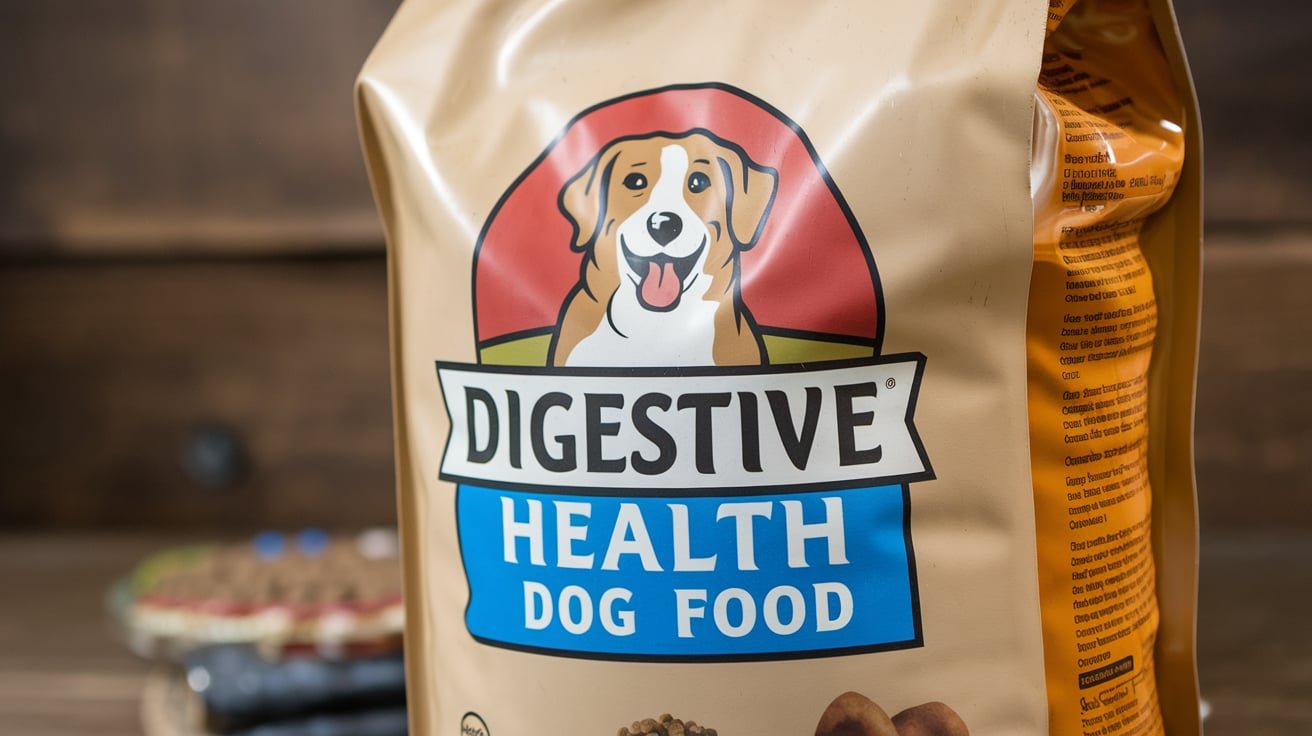Introduction To Digestive Health Dog Food:
When it comes to caring for our pets, digestive health often doesn’t get as much attention as it should. However, a dog’s digestive system is crucial for their overall well-being and quality of life. Choosing the right digestive health dog food can make a significant difference, especially if your furry friend has a sensitive stomach or frequent digestive issues.
In this guide, we’ll dive into everything you need to know about supporting your dog’s digestive health through the right food choices. We’ll cover the signs of digestive issues, the types of food to look for, and practical tips for making the switch to a healthier diet. By the end, you’ll feel confident in choosing the best food to keep your pet’s stomach happy and healthy.
Why Is Digestive Health Important for Dogs?
A well-functioning digestive system helps dogs absorb essential nutrients, maintain a strong immune system, and avoid common issues like gas, bloating, and diarrhea. Poor digestion, on the other hand, can lead to discomfort, lethargy, and even long-term health problems if left unchecked.
How Digestive Health Dog Food Can Help
Digestive health dog food is specially formulated to be gentle on your dog’s stomach, often including ingredients that support gut health, reduce inflammation, and promote better nutrient absorption. For dogs with food sensitivities, switching to a more suitable diet can make an immediate difference.
Anecdote
I remember my friend Sarah’s struggle with her dog, Max, who had a sensitive stomach from a young age. She tried countless brands before finally finding a digestive health dog food that didn’t upset his stomach. Within a week, Max was not only eating better but also had more energy and a shinier coat. For Sarah, it was a reminder of how big a role diet plays in a dog’s health.
Signs Your Dog Might Need Digestive Health Dog Food
If you’re wondering whether your dog could benefit from digestive health food, watch for these common signs:
- Frequent diarrhea or loose stools
- Vomiting after meals
- Excessive gas or bloating
- Poor appetite
- Low energy levels
- Weight loss despite eating
If your dog displays any of these symptoms consistently, a change in diet may help. However, always consult your vet first to rule out underlying health issues.
Types of Digestive Health Dog Food
Let’s explore some types of digestive health dog food available in the UK and what they offer for your dog’s stomach.
1. Hypoallergenic Dog Food
For dogs with food sensitivities, hypoallergenic dog food can be a game-changer. It’s usually free from common allergens like beef, dairy, wheat, and soy, which are often responsible for upsetting sensitive stomachs.
Example: Royal Canin Hypoallergenic Dog Food is a popular option that’s widely recommended by UK vets for dogs with food allergies.
2. Probiotic-Enriched Dog Food
Probiotics are beneficial bacteria that help balance the gut and aid digestion. Probiotic-enriched dog food is often recommended for dogs with recurring digestive issues, as it can promote a healthier gut environment.
Example: Hill’s Science Plan Sensitive Stomach & Skin is an option with probiotics designed to soothe sensitive stomachs.
3. Limited Ingredient Dog Food
For dogs prone to allergies or intolerances, limited ingredient diets are helpful because they contain fewer components, making it easier to avoid problematic ingredients. This type of food often uses a single protein source, which reduces the chance of triggering sensitivities.
Example: James Wellbeloved Dog Food offers limited-ingredient recipes that cater to dogs with digestive sensitivities.
4. High-Fiber Dog Food
High-fiber dog food can aid digestion by adding bulk to stools and helping to prevent constipation. Fiber is especially helpful for dogs with irregular bowel movements or conditions like colitis.
Example: Burns High-Fiber Dog Food is a well-known UK brand that incorporates fibre to promote healthy digestion.
Choosing the Right Digestive Health Dog Food
When selecting digestive health dog food for your pet, it’s essential to consider your dog’s specific needs and preferences. Here’s a step-by-step guide to finding the best option:
- Identify Any Food Allergies or Sensitivities: If you suspect an allergy, work with your vet to identify the culprit ingredients.
- Look for Probiotic Ingredients: Probiotics are a fantastic way to improve gut health, especially if your dog frequently has loose stools.
- Check Fiber Content: Fiber helps with both constipation and diarrhea, so choose a food that includes moderate amounts of fiber.
- Avoid Artificial Additives: Artificial preservatives, flavors, and colors can exacerbate digestive issues.
- Introduce New Food Gradually: Switching to new food too quickly can worsen digestive issues. Start by mixing small amounts of the new food with the current diet and slowly increase it over a week.
Step-by-Step Guide to Transitioning Your Dog to Digestive Health Food
Switching your dog to a new diet, especially one focused on digestive health, should be done gradually. Here’s how to make the transition smooth and stress-free:
- Start with a Small Amount: Mix 25% of the new food with 75% of the current food for a few days.
- Increase the Ratio: After 3-4 days, increase to a 50/50 mix.
- Observe Any Changes: Keep an eye on their stool, energy levels, and appetite. If any negative reactions appear, slow down the transition.
- Complete the Transition: After about 7-10 days, your dog should be fully adapted to the new diet.
Quick Tip
For dogs with very sensitive stomachs, consider adding a digestive supplement during the transition. Digestive enzymes or probiotics can help reduce any potential discomfort.
Benefits of Digestive Health Dog Food
Switching to digestive health dog food can bring a range of benefits for your dog:
- Improved Stool Quality – Consistency in stools is one of the first signs of a balanced digestive system.
- Less Gas and Bloating – High-quality, digestible ingredients lead to less gas and bloating.
- Better Nutrient Absorption – When food is easily digestible, your dog’s body can absorb nutrients more efficiently.
- Enhanced Energy Levels – Improved digestion often translates to more energy and better overall vitality.
- Healthier Skin and Coat – Digestive health foods with added omega-3 fatty acids can contribute to a shiny, soft coat.
Persuading You to Make the Switch
If your dog struggles with digestive issues, investing in digestive health dog food is one of the best things you can do for their well-being. Not only will it likely reduce their discomfort, but it will also improve their energy levels and overall quality of life. Imagine seeing your pet thrive, free from the bloating or discomfort that digestive issues bring!
Conclusion
Choosing the right digestive health dog food for your furry friend in the UK doesn’t have to be complicated. By focusing on high-quality ingredients, beneficial probiotics, and digestible proteins, you can help your dog feel their best. Whether you opt for a hypoallergenic, probiotic-enriched, or high-fiber option, the right food can make a lasting difference in your pet’s health.
Remember, a happy gut leads to a happy dog! Make the switch today and watch the positive effects it can have on your dog’s life.



